The history of the Kurdish people has been marked by centuries of fragmentation. The Kurds lack national consciousness. Even now, in the 21st century, the Kurds have not managed to become a nation.
The states that divided up the land of the Kurds among themselves after World War I – with the help of the victorious European powers – contributed to this state by doing everything to prevent the development of a national consciousness. With centuries of experience in state leadership, they understood exactly how to prevent the unification of the Kurds. In addition to the feudal structures in Kurdish society, they exploited religious differences in order to prevent unification using to the principle of “divide and rule.”
Thus, the Kurds numbering about 45 million people, are the largest people in the world without their own state. They are divided, expelled, enslaved, and turned against their own people. As the Turkish sociologist Dr. Ismail Besikci says, “The Kurds do not even have the status of a colony. The colonies are considerably better off than the Kurds because they have their own land with their own borders, their ethnicity, their language and their culture accepted and officially recognized, which is not the case with the Kurds.”
In the 21st century, it should be possible for academic and intellectual Kurds to come together for professional exchange and cooperation without political goals. Doctors are best suited for this because of the nature of their profession, as they are required to stand up for the preservation and restoration of human health without distinction of religion, nationality, race, party affiliation, or social position.
Based on this principle, some colleagues and I convened in 2008 to determine whether we could organize a purely scientific, professional congress among Kurdish doctors. The goal was to invite Kurdish doctors from all parts of Kurdistan and around the world, as well as those living in regions mainly inhabited by Kurds in the Middle East.
As a group of about 10 doctors from Europe and from Northern Kurdistan, we travelled to the Kurdistan Region of Iraq (KRI) and met with the medical associations in Duhok, Erbil, and Sulaymaniyah. After exchanging ideas, we agreed to organize the first medical congress under the name “Mesopotamian Health Days.” We deliberately chose the term Mesopotamia in order to integrate all the ethnic groups that have been living together in the region for centuries and even millennia. To date we have held nine Mesopotamian Medicine Congresses throughout the region and the world.
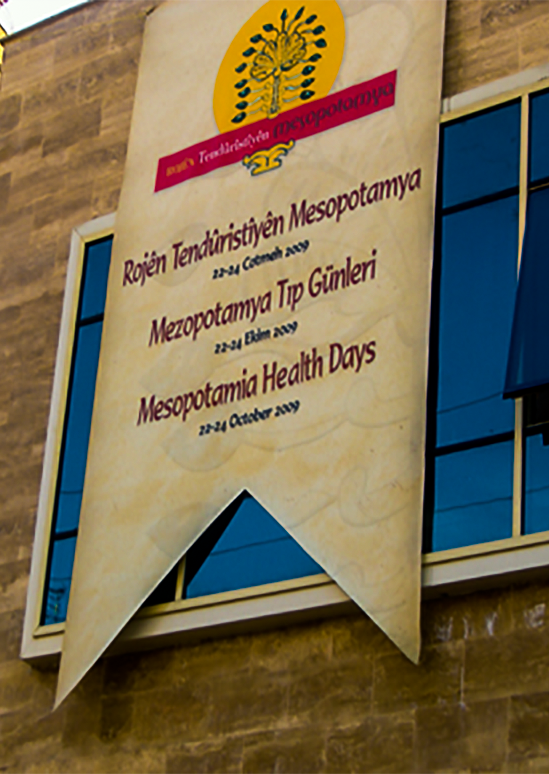
First Congress
The first congress under the name Rojen Tendrustiye Mezopotamyaye, or “Mesopotamian Health Days,” was held in Diyarbakir from October 22-24, 2009. Organized by the Diyarbakir Medical Association with the active support of the Turkish Medical Association, the opening ceremony took place in the district of Sur within the historical city walls of Diyarbakir. The congress was hosted by the Cegerxwin Youth Culture and Arts Center. About 200 doctors and scientists attended the congress. There were 30 lectures in Kurdish, Turkish, and English, with simultaneous translation provided. About 50% of the lectures were given in Kurdish.
The congress was a highlight in the lives of many Kurdish doctors. An elderly Kurdish doctor from Armenia made the four0day journey to Diyarbakir and was deeply moved when he heard the first lectures in Kurdish. A Kurdish doctor from Iran and Syria could only arrive by illegally crossing the Turkish border at night, because otherwise he would not have been allowed to attend the congress. Some attendees put their lives at risk. The press was represented in large numbers and there was continuous coverage over the two days, because it was the first medical congress held in the Kurdish language.
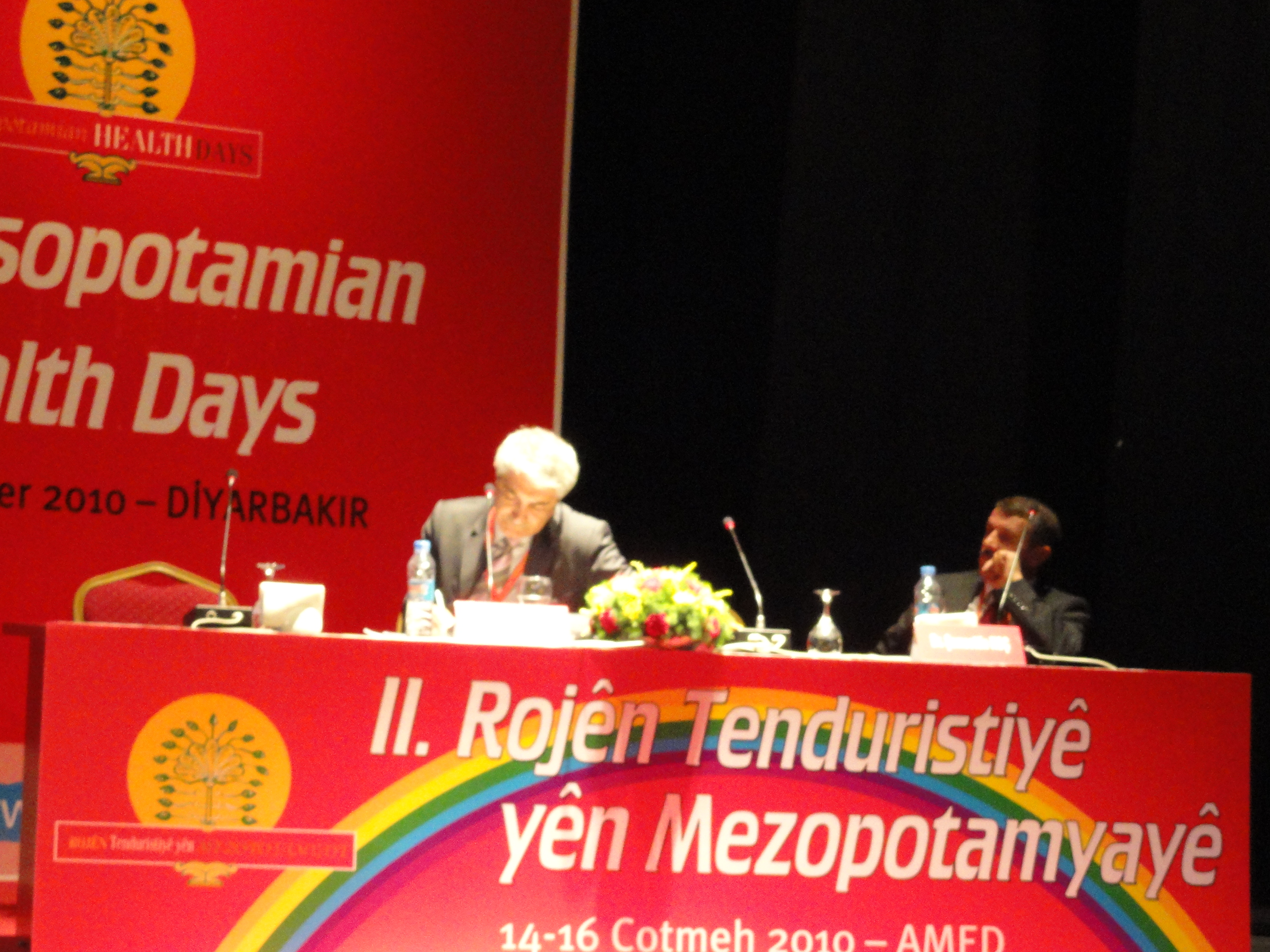
Second Congress
The second congress was held under the name Rojen Tendrustiyen Mezopotamyaye II, or “Mesopotamian Health Days II,” on October 14-16, 2010 in Diyarbakir. About 300 doctors and scientists from all parts of Kurdistan and around the world participated. The attendees decided to rename the congress the “Mesopotamian Medicine Congress.
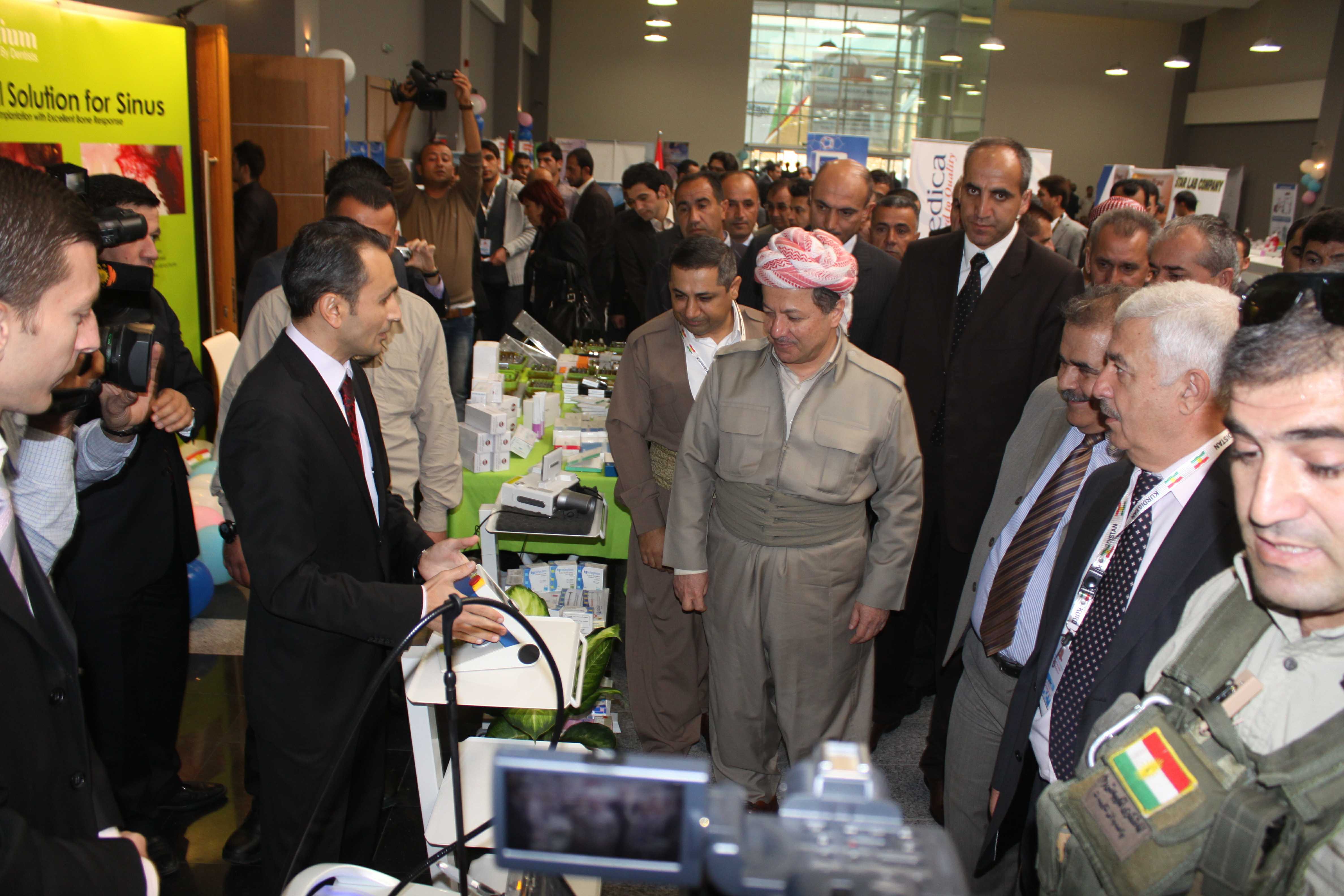
Third Congress
The third congress took place under the name “Mesopotamian Medicine Congress III” on October 28-29, 2011, in Duhok, KRI. The congress was organized by the Duhok Directorate General of Health. The opening statement was made by then-KRI President Masoud Barzani. More than 600 participants from all regions of Kurdistan and around the world took part in this congress. Scientists and doctors even travelled from the United States and Japan to attend.
Fourth Congress
The fourth congress under the name “Mesopotamian Medicine Congress IV” took place in Diyarbakir on June 8-9, 2012, welcoming around 400 participants.
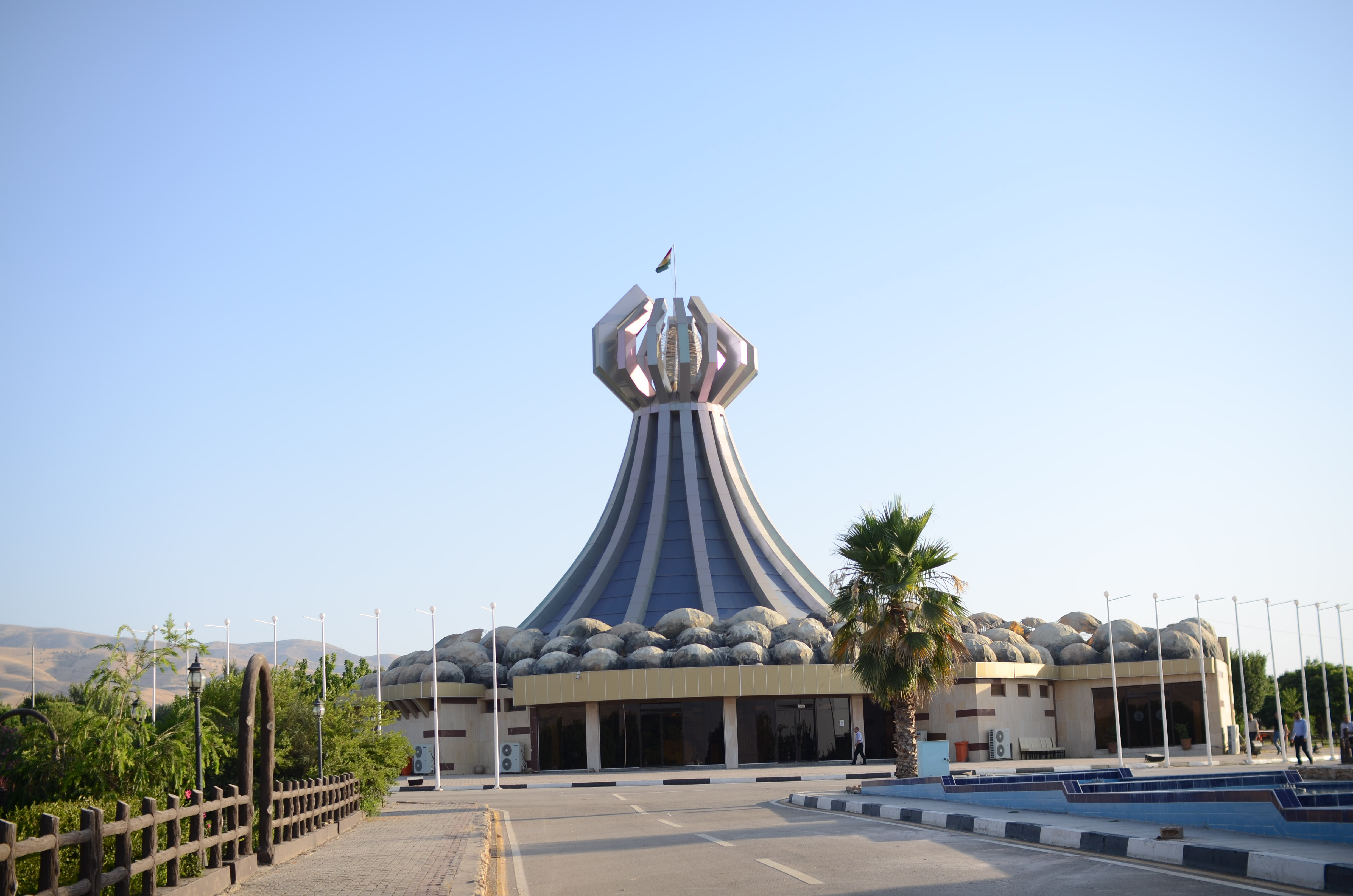
Fifth Congress
The fifth congress under the name “Mesopotamian Medicine Congress V” took place on March 13-16, 2013 in Sulaymaniyah in the KRI and featured around 500 participants. We held this congress on the 25th anniversary of the Halabja poison gas attack, so it was very moving as its main theme was war crimes.
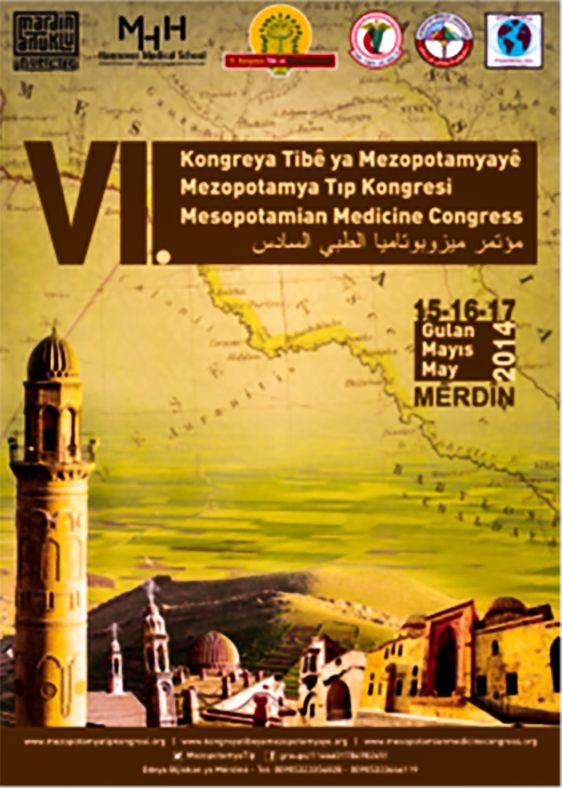
Sixth Congress
The sixth congress took place under the name “Mesopotamian Medicine Congress VI” on May 15-17, 2014 in Mardin, Turkey at Mardin Artuklu University and featured about 400 participants. Again, many doctors from Syria and Iran were present. Due to the fact that many Assyrians live in Mardin, a session was held in Syriac Chaldean. Kurdish doctors from Syria could only arrive by illegally crossing the Turkish border at night. Some of them suffered serious injuries, as shown in the pictures below, and put their lives at risk. This underlines the importance of the congress for every Kurdish doctor.
A colleague from Syria suffered injuries to her face and hands during the border crossing from Syria to Turkey in order to be able to participate in the congress in Mardin in 2014.
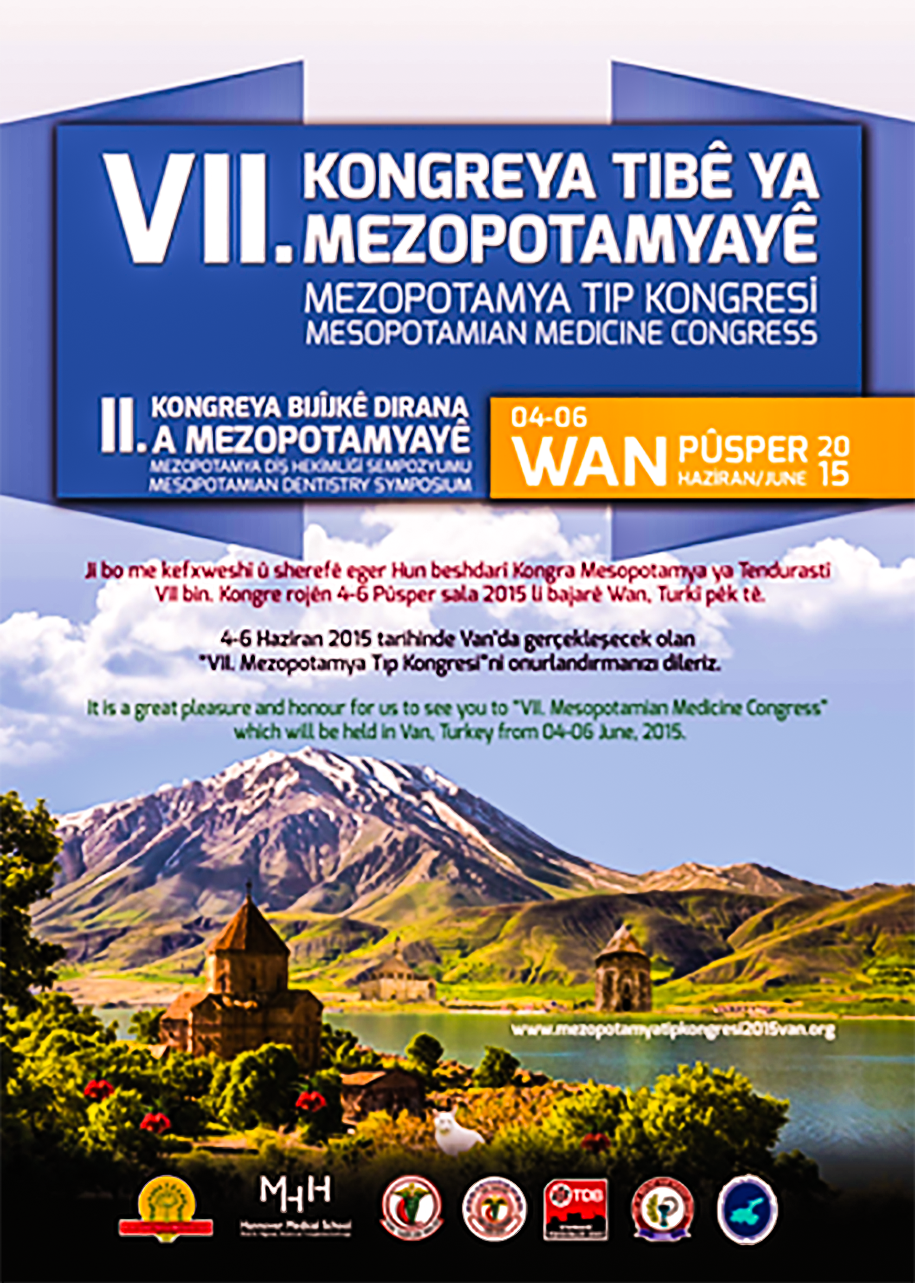
Seventh Congress
The seventh congress was held in Van, Turkey, from June 4-6, 2015, with about 400 participants attending. Here we held a session in Armenian, as the city of Van was originally inhabited by many Armenians.
The main topic of the congress was the ISIS attack on the Yezidi Kurds in Sinjar, which left 400,000 people as refugees, and the ISIS attack on the city of Kobane in Syria. Many doctors from Syria travelled across the Turkish border overnight to attend the conference. Many of their colleagues were arrested, and many arrived in Van with injuries.
Eighth Congress
The eighth congress was held after a break of four years due to the war in the KRI. It took place on June 22, 2019 at Duhok University with the International Congress of Psychology Staff About 300 participants took part.
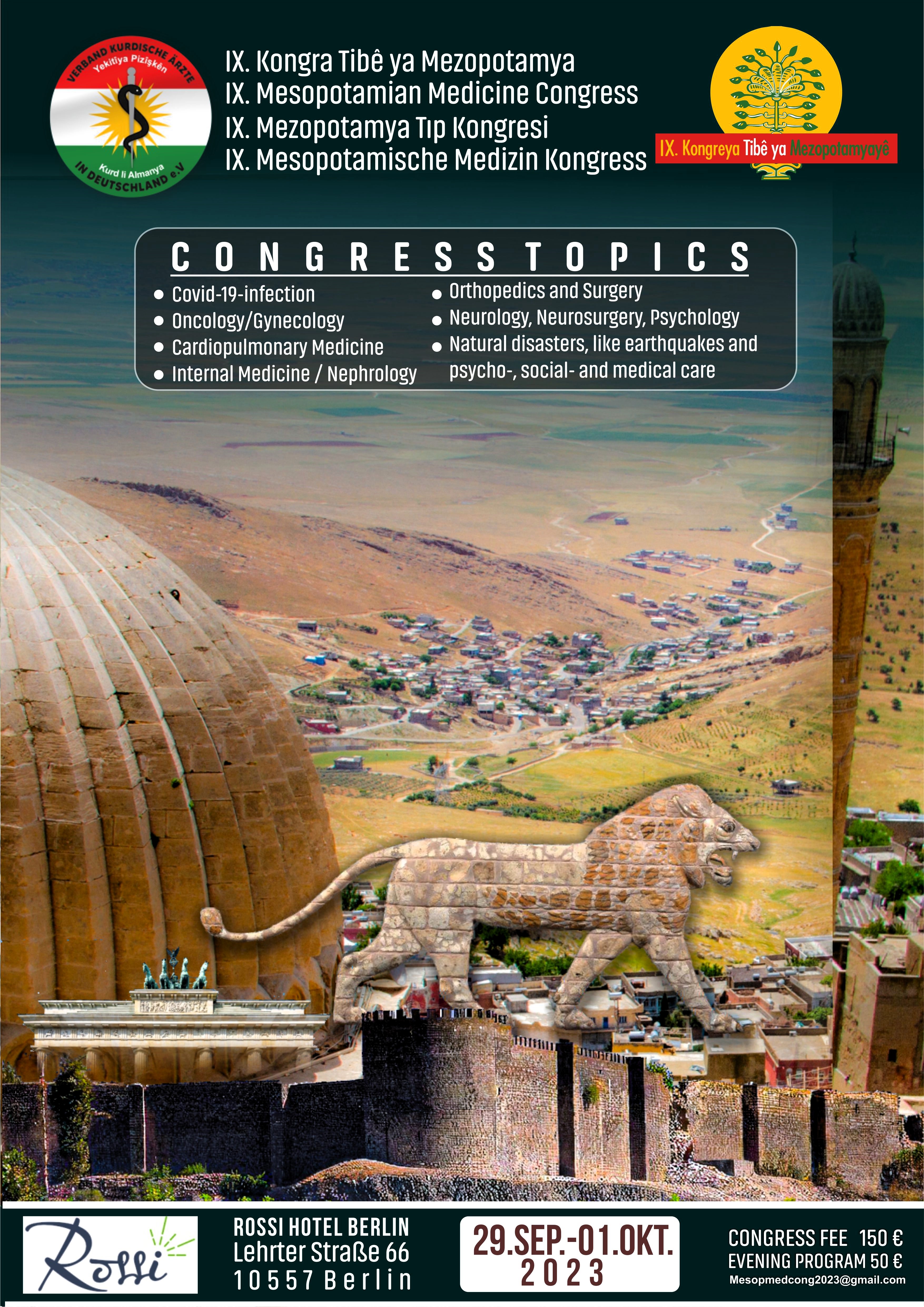
Ninth Congress
After a break of four years because of the Covid-19 pandemic, the ninth congress took place in Berlin in 2023 with 150 participants. The decision to hold the conference abroad was due to the general political situation in the KRI, and Berlin was deemed particularly suitable because about 2 million Kurds live in Germany and about 1,000 doctors of Kurdish origin are active there. As expected, many colleagues from Kurdistan could not easily travel to Berlin because of visa regulations or financial constraints. However, it was important for us to hold the congress, even if it was only symbolic, to ensure continuity in our mission.
Prof. Dr. Husen Bektas is a professor at the Hannover Medical School (MHH) and head physician of the Clinic for General, Visceral and Oncological Surgery at the Klinikum Bremen-Mitte. He is chairman of the board of the S.A.Z. Children Welfare Organization. He is one of the initiators of the Mesopotamian Medicine Congress.